Sobriety Needs a Rebrand
As a verbal strategist, I help brands tell their story. As a non-drinker, I see how the language of sobriety is all wrong.
Welcome back to Brazenface, an illustrated newsletter about facing fear. Today, I’m mustering the inner cojones I forgot I had and sharing why I will never call myself “sober.”
A few days after venturing to my first and only sex club, I found myself ordering a “virgin gin and tonic” at a local Berlin bar, wincing at the words and the innocence they implied.
Maybe I’m being too sensitive, I thought, sipping my “virgin” cocktail in my non-virgin hands. Sure, I had only danced next to folks getting freaky at the famous Berlin club (turns out there’s a great dance floor there!) But that didn’t mean I was “pure” simply because I ordered the non-alcoholic version of a classic G&T.
A few weeks later, at a restaurant with friends, I grimaced at the menu of misnomers. Amongst a sea of sexy cocktails, all the non-alcoholic options featured belittling titles: Lemon Drop mocktail; Sun’s Up mocktail; Oh, What Fun You Must Be mocktail (okay, yes, the last one is named by me — but it’s for emphasis, I promise).
Mocktails might not have the liquor of their cocktail counterparts, but who wants to order something that implies mockery?
As a newly booze-free person then, I tried to let it go. But as a verbal strategist, I couldn’t.
In my 9-5 life, I help brands craft their approach to language.
Every word a brand uses — from its tagline to its TikTok bio and website homepage — tells the world what it stands for. Every word is a style choice, creating a voice and a vibe that, ideally, customers instantly recognize. Just Do It. Nike. Finger lickin' good. KFC. Even a brand’s name can signal its story: DocHub, Free People, Miller High Life.
I’ll spend months building brands with other strategists and writers; debating verbs, gerunds, adjectives, and the order that we put them in. No word gets said without a strong strategic choice behind it.
The words we use matter, so why are we using the most belittling, misrepresentative language to describe a life without booze?
It’s not just “virgin” or “mocktail” that feel off-brand. There’s other misleading language like spirit-free. Give up drinking. Hold back. Abstain. Words that imply an absence, not a presence; like you’re losing rather than gaining. Dry January. Dry living. Adjectives that sound more dull than delightful.
Perhaps the worst offender of all is the word I’m most frequently labeled: sober. While the primary definition is technically accurate (“not having drunk alcohol or not affected by alcohol”), the other definitions paint a bleak picture: “serious, plain and not bright.” The synonyms are even more ebullient: “Solemn,” “humorless,” “unsmiling.”
When I’m working with agencies or businesses to create a new brand identity, I’ll write all kinds of copy to build a brand world. Manifestos that create a mood. Headlines that inspire. Now tell me, how do these lines make you feel:
“Anthony was in a very sober mood - I scarcely heard him laugh all night.” Or better yet: “The whole wedding was a sober affair - no dancing, just people standing around in groups chatting politely.” I swear I didn’t write these – I just pulled them from Cambridge Dictionary’s example sentences for “sober.”
When I was 24, contemplating if I should take a break from drinking, these exact scenarios scared the bejeezus out of me. Would my life really be this sad just because I said no to a glass of sangria? I wasn’t a “problem” drinker by any means, but I felt like alcohol was becoming a problem for my mind. Weekends were laced with hangxiety, worried I’d put myself in an unsafe situation because Saturday Night Drunk Tatiana found it thrilling.
So I stopped drinking for one month. Just to see. I felt so good after that booze-free month, like I had woken up from a dulled version of my life, that I kept it going. Three years later, I haven’t looked back.
What actually happened when I stopped drinking
If I could rebrand a life without booze, I’d use language like love! Energy! Woah. I’d tell you how, without liquid courage, the world opens up for you. Color is louder. Doing scary things is scarier. Music comes alive. You start wearing clothes that actually feel like you. I’d create a booze-free brand identity about the magic of falling in love. First with life. Then another person. Turns out there’s no greater buzz than the buzz of being fully seen.
If I could rebrand a life without booze, I’d write lines like do it for the joy of it and I. Just. Can’t. Stop. Dancing. But I’d also make our brand voice as soft as it is spirited. Because when you stop drinking, you often start crying. Without alcohol, I’ve realized I’m actually the biggest sap on planet Sap Face. I’ll tear up when I’m happy, standing in awe surrounded by mountains, or quite simply because there’s a really cute senior couple crossing the street.
But don’t just take it from me. If I could rebrand a life without booze, I’d also pass the mic to other alcohol-free folks to include their sides of the story. I asked a few of my non-drinking friends to describe their lives without alcohol in one word. Their replies came quick. No hesitation. Here are their answers, paired with a photo from my alcohol-free years.
Life without booze isn’t sober, dry, or giving up. It’s:
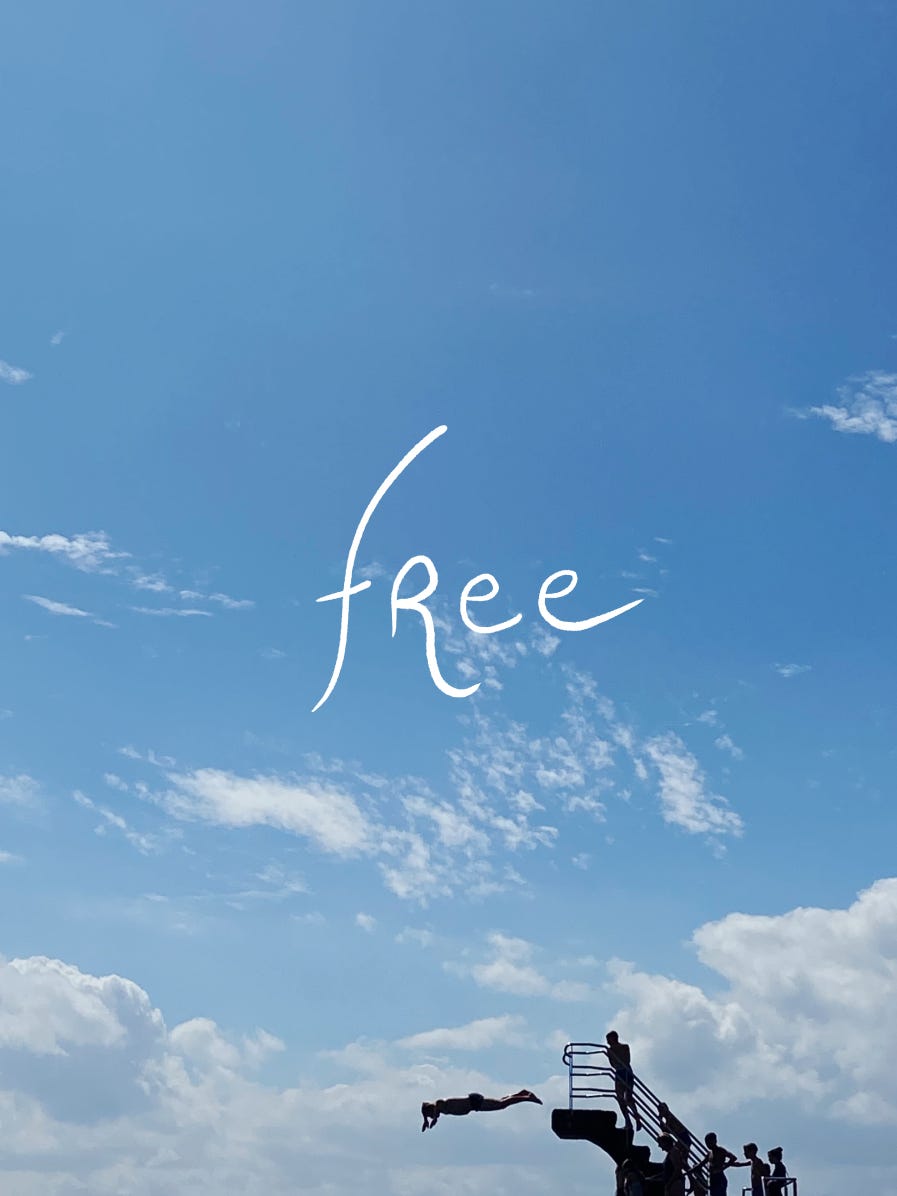
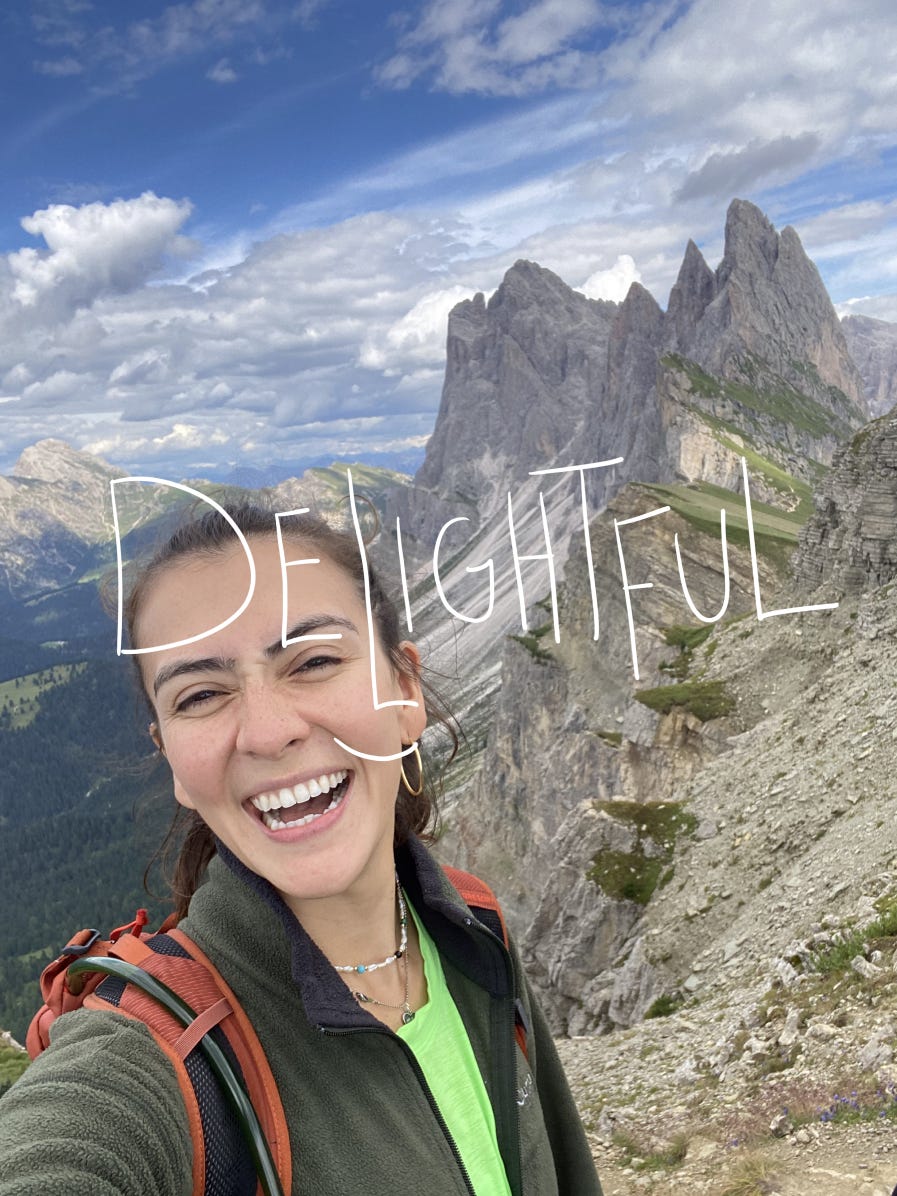
When someone finds out I don’t drink, they’re quick to say, “Oh, you’re sober!” as if that’s what defines me. It’s never felt right, but it wasn’t until I started diving into the actual root of the word and the language that surrounds it that I recognized why.
If I could rebrand a life without booze, I’d drop the misleading labels like “sober,” “dry,” and “spirit-free.” I’d swap “virgin” drink and “mocktail” for more accurate, descriptive names like “N/A,” “non-alcoholic,” or “booze-free and fabulous.” And rather than focusing on what we’ve “given up,” I’d celebrate all the magic that we’ve gained: confidence, clarity, a radical sense of self.
Of all the words to describe this booze-free life, I think I’ve found mine.
(AKA other moments of courage — big and small)
Writing about my life without alcohol: I’ve been wanting to write this piece for over a year, but I’ve been afraid of being perceived as a problem drinker or unprofessional — especially when it’s a piece that’s tied to my career. But I’m putting on my Brazenface and sharing it anyway because life without alcohol is too abundant to be limited to the wrong words.
Posting my first op-ed in ages: I haven’t written an op-ed since the one I wrote in college went viral. Potentially stirring the pot again is scary! Many people — especially those in life-changing programs like Alcoholic’s Anonymous — find power in the label “sober.” This piece isn’t meant to diminish that power, but to speak from a different alcohol-free POV.
Reaching three years booze-free (!!): I never expected to be on this alcohol-free path, but, boy, am I freaking grateful to be on it. No liquid courage. No shots of confidence. Just me, myself, and many, many dance floors.
Tatiana Gallardo is a freelance verbal strategist and copywriter, illustrator, and seltzer-with-lime-believer based in New York City. Recently, her friend at the gym, Maria, saw her and said, “¡Te ves muy vibrante!” (you look so vibrant!). Little did her friend know. Tatiana was just booze-free.
.



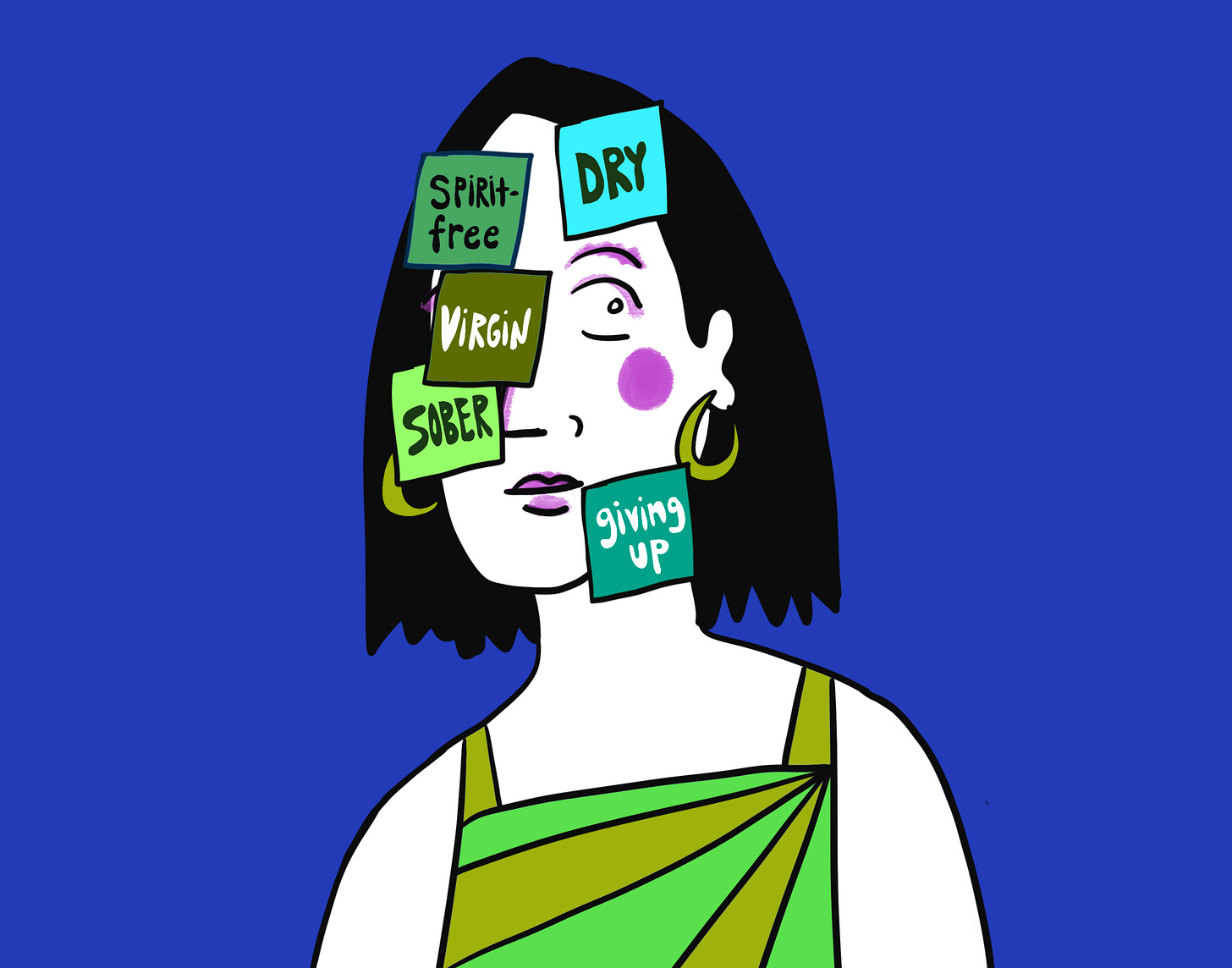


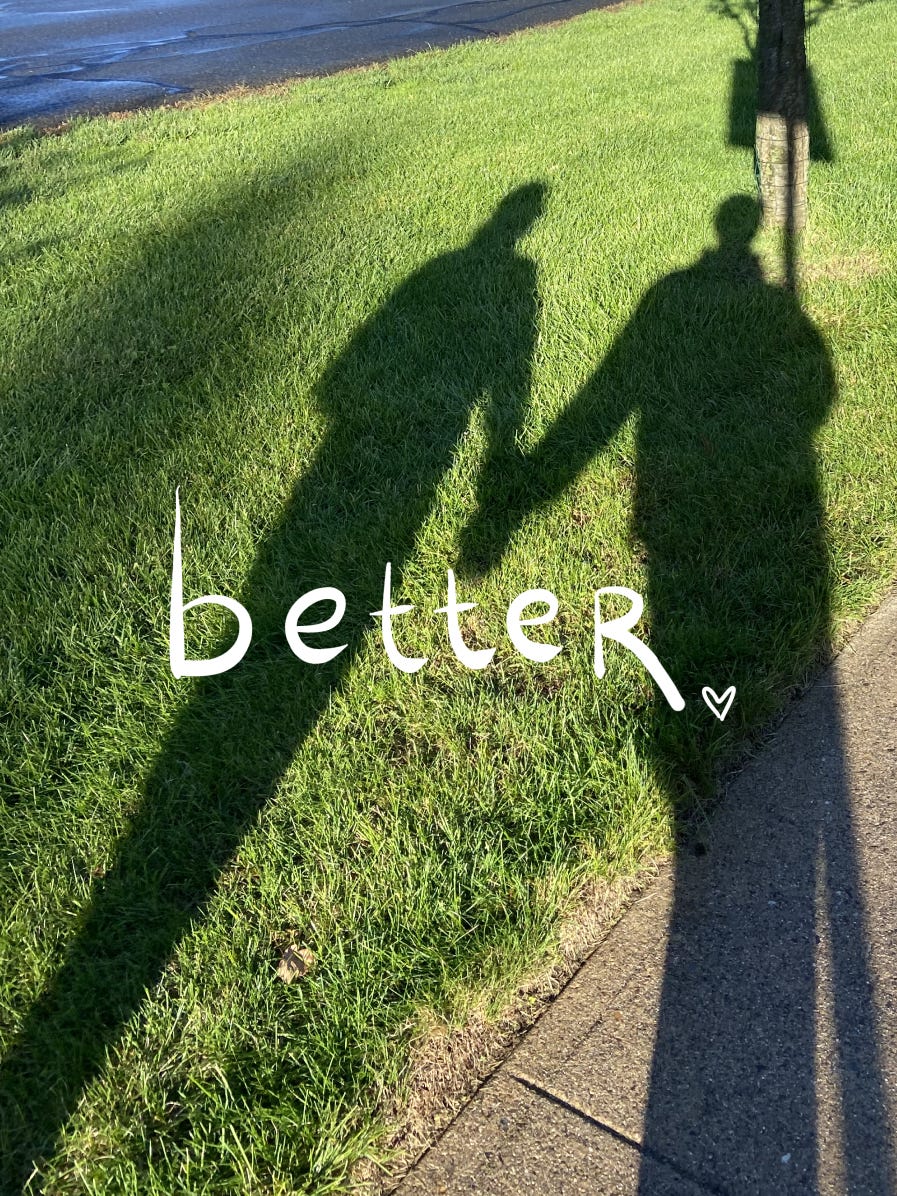

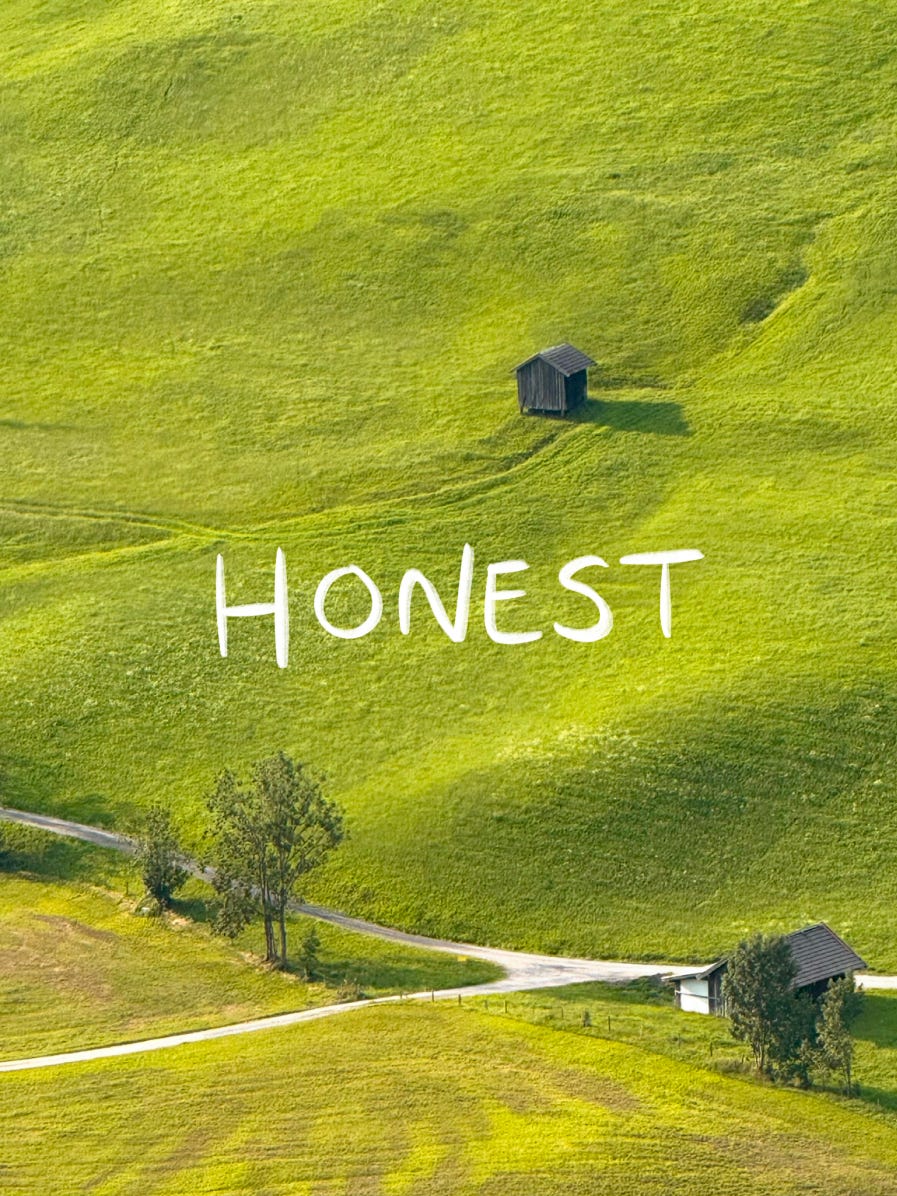




Thank you for your inspiring piece! I’m 67 and I’ve been a non-drinker for 15 fabulous years. When people ask me about before and after drinking I often say that without alcohol I have clarity, energy, and a sense of wellbeing that I could not capture when I had alcohol in my life. I tried - I ran half marathons, traveled around the world, and on and on but could never find clarity or any of the other gifts I now have. I love your writing!!
ur so back